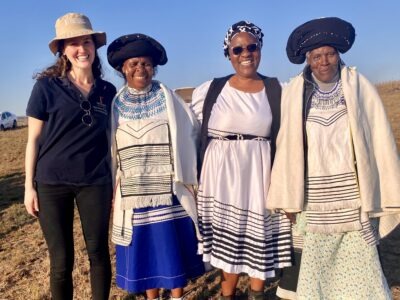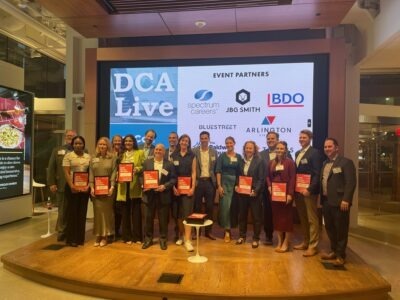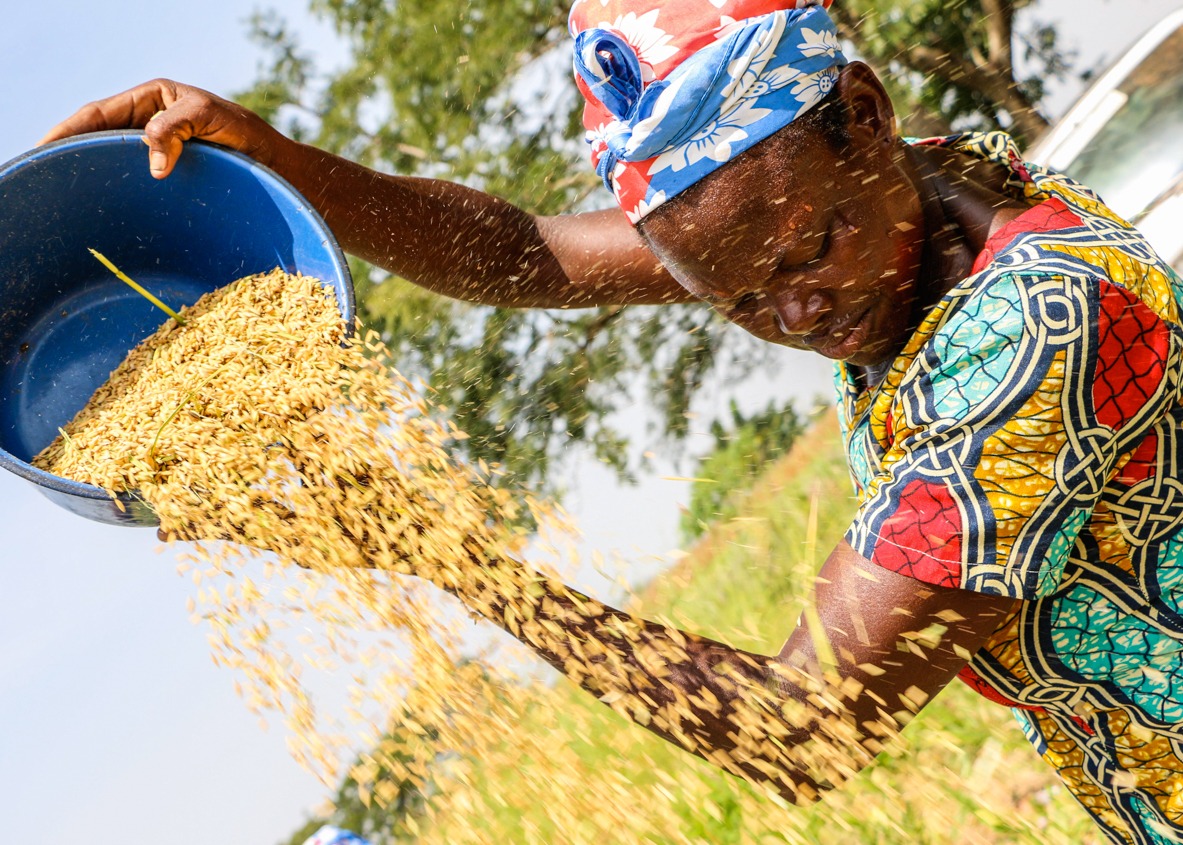
In Ghana, maize, rice, and soybean crops are mostly produced by smallholder farmers. But these crops are important commodities in the Ghanaian economy and critical to the country’s food security. To support these smallholder farmers, the Ghana Agricultural Development and Value Chain Enhancement II (ADVANCE II) Project operated from 2014 to 2021 with funding from USAID’s Ghana Mission under the Feed the Future initiative. Implemented by ACDI/VOCA, the project is a continuation of ADVANCE I, which operated from 2009 to 2014, amounting to roughly a decade of efforts in strengthening these crop value chains.
As we reflect on a decade of impact, explore the ADVANCE II project’s milestones, below:
ADVANCE II worked with . . .

Increased crop yields and gross margins for smallholder farmers
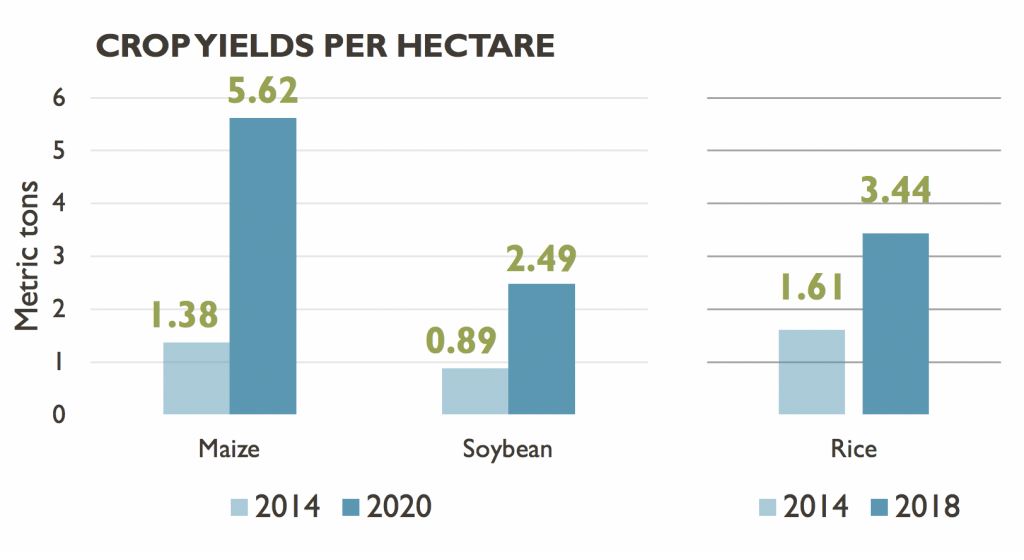
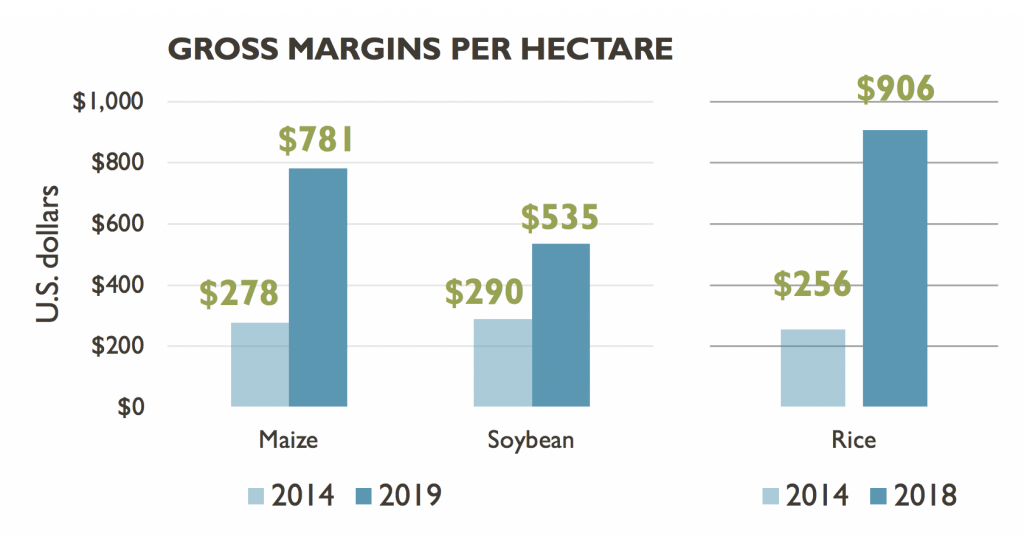
Facilitated finance and investment

Introduced the outgrower business (OB) model
During ADVANCE I, smallholder farmers struggled to access high-quality agricultural inputs, such as fertilizers, and services, such as tractor rentals. This negatively affected their productivity and crop quality, preventing them from selling to high-end markets. ADVANCE I established the outgrower business (OB) model, which connects OBs with smallholder farmers to strengthen relationships along crop value chains. Also known as contract farming, outgrower schemes are agreements in which an OB offers inputs and services to farmers in exchange for an agreed upon quantity of produce at harvest. With better inputs and services and secure buyers, farmers can earn higher prices and improve their incomes.
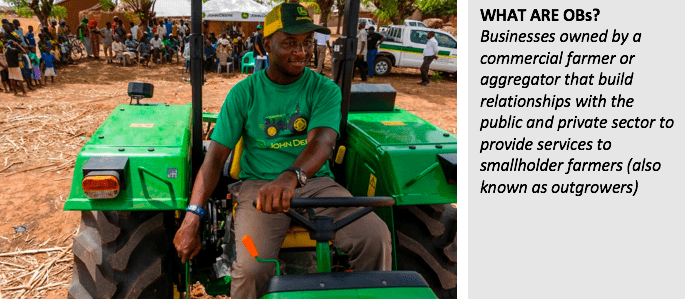
Ensured sustainability by creating OB networks
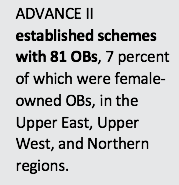
To make the model sustainable, ADVANCE II formed 10 zonal and three regional OB networks to serve as business associations and continue efforts after the project ends. OB networks work to:
- influence local and national policies
- reduce the costs of inputs through bulk purchases
- organize collective marketing efforts to realize economies of scale
- lower risks for potential investors
- provide business development services to network members.

Created a viable marketplace

Provided grants to OBs


Promoted gender inclusion
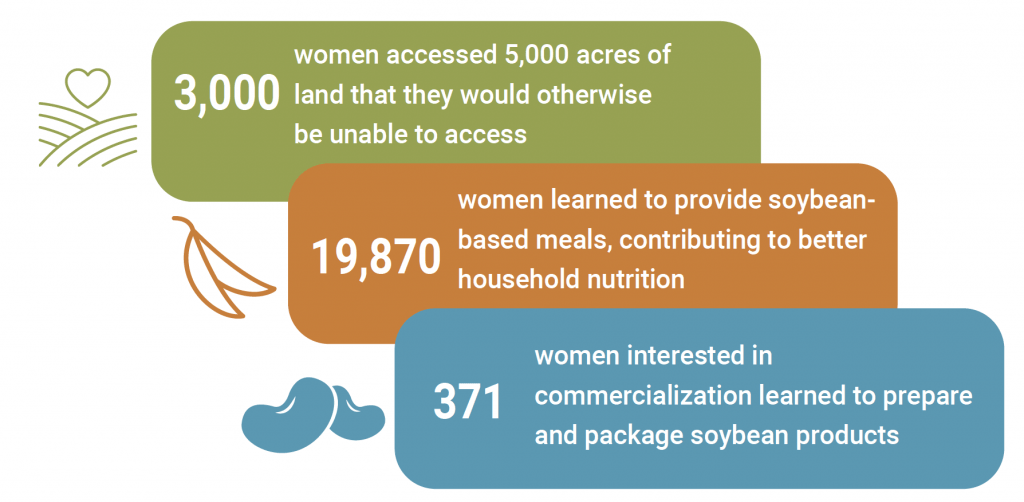
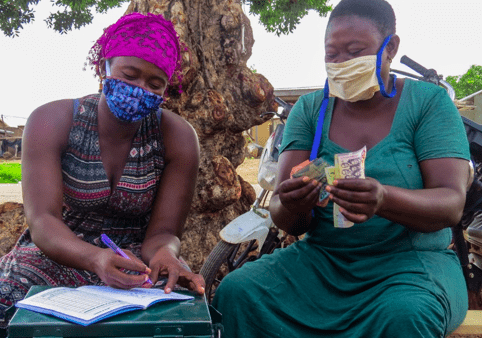
Members of a VSLA record contributions.
OBs reported that women who belong to village savings and loan associations (VSLAs)
- save more
- purchase more inputs
- achieve higher yields and incomes
- spend more on their children’s education and family’s health
- are more likely to invest in alternative business activities, expand their farms, and diversify their products.

Read more about six ways female farmers benefitted from VSLAs.
Won the 2017 Digital Development Award
ADVANCE II won the 2017 Digital Development Award during USAID’s Global Innovation Week for its use of smartcard technology to capture data. Watch the video.
“Anytime I attend a training, I put it on, and it makes it easier to identify me. . . . The card gives my personal details, farm size, yield, and other information. I feel so proud when I wear it.”
— Fati Sulemana, a smallholder farmer in Nansoni in the Northern Region
Mitigated the risk of fall army
ADVANCE II provided guidance on the recommended timing, dosage, and plant stage for applying pesticides, which informed Ghana’s national response framework.
ADVANCE II joined the country’s national taskforce alongside the Ministry of Food and Agriculture and the Food and Agriculture Organization of the United Nations. By 2018, most farmers reported low or moderate impact.
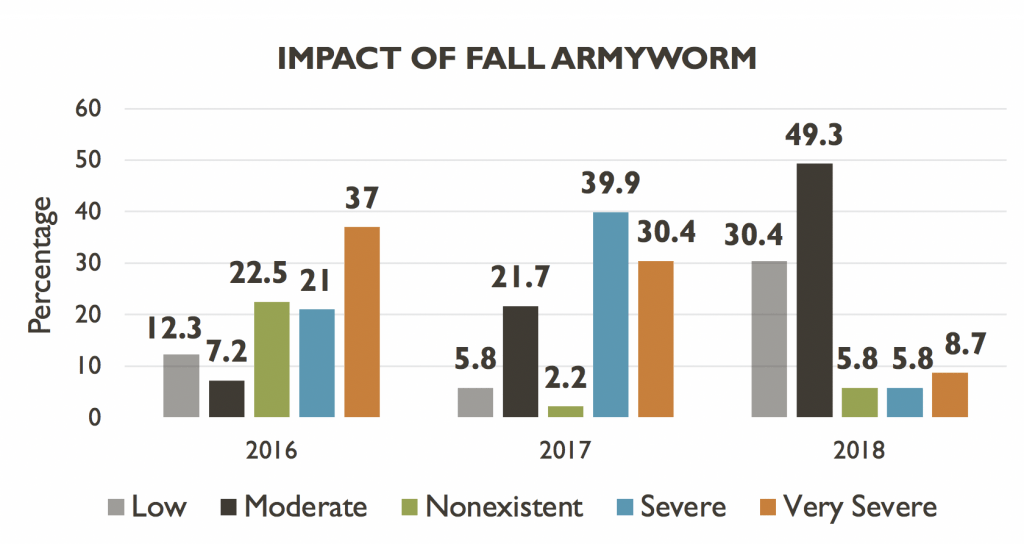
Learn more about the USAID-funded Ghana Agricultural Development and Value Chain Enhancement II (ADVANCE II) project.

